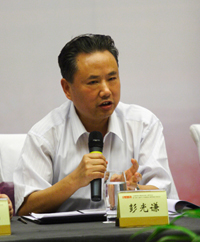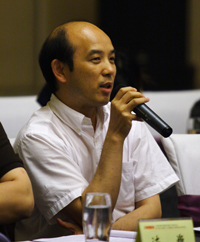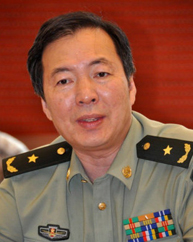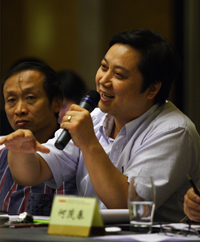Double jeopardy of China's diplomacy
Editor's Note:
Frictions between China and the US and China and its neighboring countries have been constant this year. Does China face new unfriendliness from both developed and developing countries? Are such growing pains inevitable for emerging powers? Global Times (GT) reporter Hu Jia talked to Yuan Peng (Yuan), director of the Institute of American Studies at China Institutes of Contemporary International Relations, Sun Zhe (Sun), director of the Center for Sino-US Relations at Tsinghua University, Peng Guangqian (Peng), a specialist in military strategy at the People's Liberation Army Academy of Military Sciences, and Xu Yan (Xu), a professor at the Chinese People's Liberation Army's National Defense University, on these issues.
|
Peng Guangqian |
Yuan Peng |
|
Xu Yan |
Sun Zhe |
GT: Is China's development "blocked at both ends?" Is it opposed by both developing and developed nations?
Yuan: If a man suddenly becomes strong, he will become a thorn in the leaders' flesh and arouse jealousy from colleagues and neighbors. That's what China is going through.
Since the US believes its hegemony is being challenged by China, it will take precautions against China's rising. For those new emerging countries, such as India, their unfriendliness toward China stems from jealousy. As for other developing countries, they are worrying that China will gradually shift away from them and grow into a developed country and can't represent them any more. Their feelings toward China are a sense of crisis and loss. Because China is an Asian country, its rise has more prominent impact on surrounding countries.
Sun: In the past year and a half, China has been criticized for its performance in dealing with climate change and the financial crisis. Many countries believed that China took advantage of the existing economic system to seek its own interests.
The US logic was very simple: Why was China the only country that maintained normal growth during the financial crisis? Some developing countries also condemned China. China has been paying great attention on developing good relations with developing countries, but confronted with many problems, China is not rich enough to aid all the other developing countries.
Peng: Using "blocked by two ends" to describe China's current situation is not so accurate. Not all the other developing countries are unwilling to see the rise of China. Some of our neighbors that have historical disputes with us do feel worried about China's rise and want to depend on the US to balance China.
Actually, they don't want to lean to the side of the US and challenge China. They just hope to use external powers to balance China.
However, this approach runs a high risk of bringing in a troublemaker, and the countries will eventually suffer.
Xu: China is facing inevitable growing pains. Although the nation seems strong as a whole, our technological level is still low and there are many problems that need to be solved.
Strictly speaking, it is not accurate to say that China is challenged at both ends. The originator of the problems that China encountered this year is the US. Although a number of countries seem to be involved in the South China Sea disputes, the yuan exchange rate and other issues, in fact, the US is the driving force.
The Sino-US relationship is on a roller coaster ride. On the one hand, the US needs China, and on the other hand, the US has to suppress China. The US policy on China is two-sided. It is not surprising that the negative side has won out this year.
 0
0 










